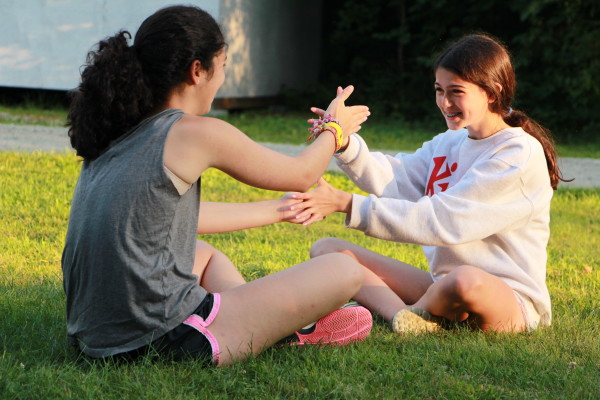by Margaret Stockard
In a world where opinions fly like balls at Wimbledon and people hide behind screens to scream their ideas, it can be hard to navigate a balance of standing up for yourself and clouting others with your words. Young people these days are having to battle so many things and many times, it happens in very stressful arenas.
They also live in a fast-paced society where modern expectation is instant gratification. Internet connections must be faster than Superman. If Netflix delays for a few seconds, the urge to lunge the laptop across the room suddenly rises.
 Children want to be heard. They want to feel important. They want to feel loved. They want to feel safe. But if they do not know how to regulate these desires, their situational reactions can sometimes be brash, giving off vulnerabilities that, without the right tools, may go unsharpened.
Children want to be heard. They want to feel important. They want to feel loved. They want to feel safe. But if they do not know how to regulate these desires, their situational reactions can sometimes be brash, giving off vulnerabilities that, without the right tools, may go unsharpened.
Lashing out may mean that little Annabelle really just wants to be heard. Maybe her opinions are not respected outside of camp. Maybe she feels negatively about herself and needs validation and therefore only knows one way in trying to achieve that validation and that is to put someone else down.
Maybe Annabelle has never interacted with people who think differently than her or who look dissimilar to her. There are many reasons which bring about impudent behavior.
Teaching Communications
Strong summer camps seek to hone the skills necessary to be able to deal with these types of situations. Camp Kippewa, specifically, is a place where communication is key on all levels, whether you are the director, a bunk counselor, or an eight-year-old girl. We must lead by example and when an issue arises, it is our job to speak up kindly and constructively. If a child disagrees with another child or someone in authority, we s
hould be there to exemplify the right behavior and guide them in eventually doing it autonomously.
Camp is also a great place to model the different types of communication. At times, your friend is going to speak to you differently than your counselor, but both parties should speak out of kindness. Strong camps emphasize teachable moments. We want to use circumstances where negative rhetoric or actions result i
n instruction and positive outcomes.

Honing Patience
Kippewa also teaches patience. As a technology-free camp, we go through our days as organically as we can. This means standing in line to eat or standing behind your table until everyone has gathered inside.
This means lining up at the flag pole and listening quietly to your friends give encouragements or feats of the day. Or listening to the rules of a really fun evening activity. Not too many things are instant at camp except fun!
In my eight summers at Kippewa, I have heard countless stories of how Beach Day burgers are the absolute best burgers and that’s because the girls have to wait for them. Instead of buying apps or snapchatting friends, they are making bracelets and learning songs on the guitar or working on week-long stained glass projects. Things that take time and resilience. Things they may not get exactly right the first time but it won’t stop them from a second time. Or a third.
In patience comes consideration. The ability to be still. To listen. To encourage. To, at times, agree to disagree. To understand that at camp, everyone is family and everyone is here to lift you up. Make a s’more with you. Build a tent with you. Decorate faces with you. Love you.
Once people feel loved and safe, it is much easier to construct healthy conversations and relationships and that is what a strong summer camp is all about.






 Check Out Our Two Week Camp Experience!
Check Out Our Two Week Camp Experience!